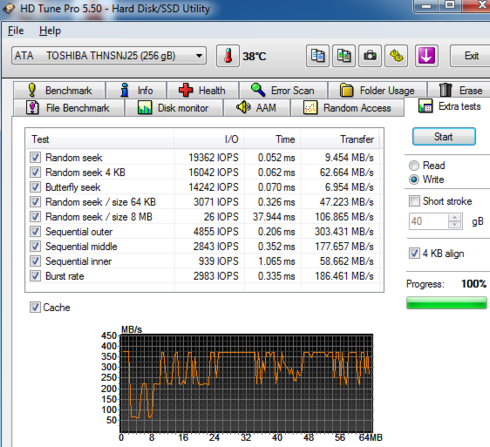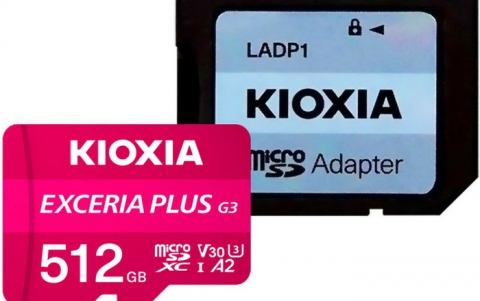Toshiba HG6 256GB SSD review
3. HDTachRW, HDTune
Here is our testbed:
- Motherboard: Foxconn Quantum Force Rattler P67 vP04 BIOS
- Processor: Intel Core i5-2500K
- Case: Open Air testbed
- Power Supply Unit: Club 3D CSP-X1000CB 1000 Watt
- Graphics card: Club3D Radeon HD 6790 CoolStream Edition
- Memory: OCZ Gold PC3-10600 4x2GB 1333@CL9
- HDD: WD 500GB 7200RPM
- Monitor: LG L246WH-BH 24"
- Windows 7 x64 SP1 with latest updates installed
For the tests, we used the following software:
- HDTachRW v3.0.1.0
- HD Tune v4.50 Pro
- Crystal DiskMark v3
- ATTO Disk Benchmark v2.46
- ASS SSD Benchmark 1.5xxx
- IOMeter v2006.07.27 with Xtreme Benchmark template
- PCMark Professional edition v1.04
- Anvil Storage Utilities 1.0.34. Beta 11
We start the tests with the HDTachRW software. The software measures the sequential read speed, the random access speed and sequential write speed.
The drive gave 410.3 MB/s and just 235.1 MB/s on average for sequential reads and writes, respectively. As you see in the graph below, the drive's writing performance dropped to almost 100 MB/s after the 135GB mark, lowering the drive's overall average writing speed.
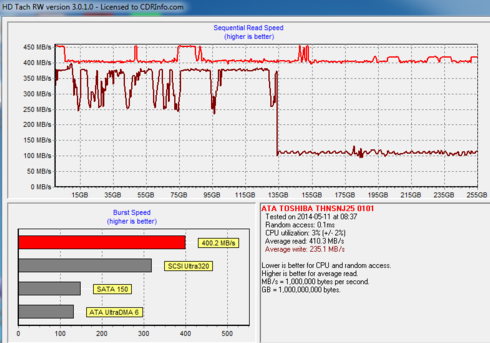
We move on to the HD Tune Pro software, another utility we used to measure the drive's reading and writing performances. Although not necessarily representative of real-world workloads, HD Tune's targeted tests give us a glimpse of each drive's raw capabilities.
This time the sequential reading test returned a 299.2 MB/s average speed and the corresponding sequential writing test a 108.3 MB/s average, which are both lower than we expected:

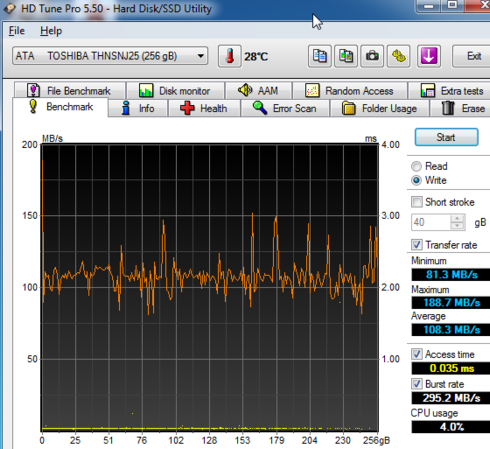
Below you see random reading test, where the Toshiba HG6 256GB SSD gave a 449.819 MB/s average reading speed for an 1MB transfer size and a 395.720 MB/s average reading for transferring files with random sizes - an average performance.
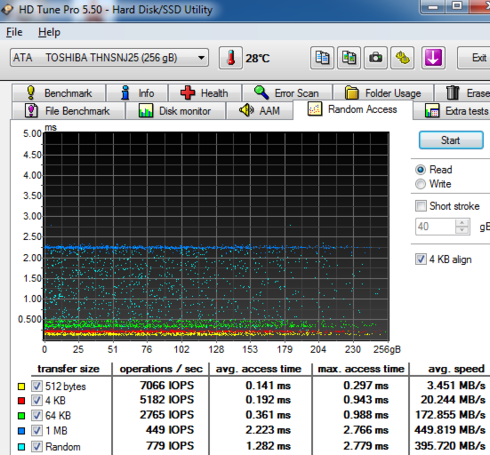
The drive's performance remained average in the random writing test with various file sizes:
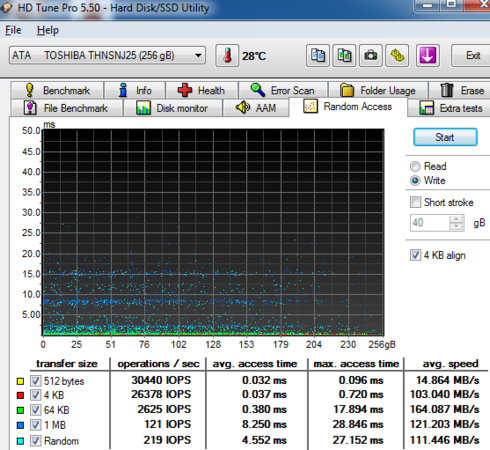
Below you see some additional sequential and random reading and writing tests:

